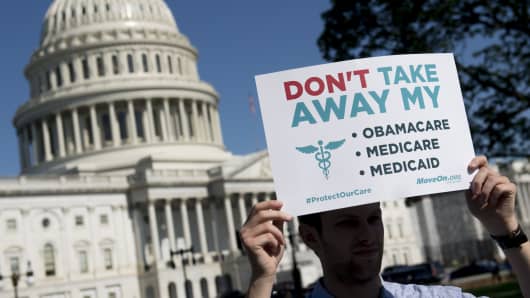The Obamacare marketplaces aren't slated to open again until November, but signs already point to trouble ahead.
A recent independent analysis confirmed what industry experts and consumer advocacy groups have already argued: Republican changes to key provisions of former President Barack Obama's health care law will do more harm to the already struggling system.
Per the Urban Institute, Congress' repeal of the tax penalty for foregoing health insurance and President Donald Trump's expansion of short-term health care plans, specifically, will cause about 9 million more Americans to have no-to-subpar coverage next year.
As healthy people drop out of the market or opt for cheaper, barebones plans, marketplace premiums will increase an average of 18.2 percent, according to the Urban Institute report. That spike is significant on its own, but more troubling when you consider 2018 plans were already prohibitively expensive for people who didn't qualify for federal subsidies.
Meanwhile, another Obamacare lawsuit emerged. Twenty state attorneys general have filed a complaint in a Texas district court, alleging the law is unconstitutional now that the individual mandate is gone. Congressional efforts to stabilize the federal and state health insurance exchanges stalled behind a series of short-term funding bills. And proposals for long-term solutions are also losing bipartisan support, due to escalating demands from each party that the other is loath to support. (Democrats want increased federal subsidies, while Republicans are pushing for abortion limitations on said subsidies.)


